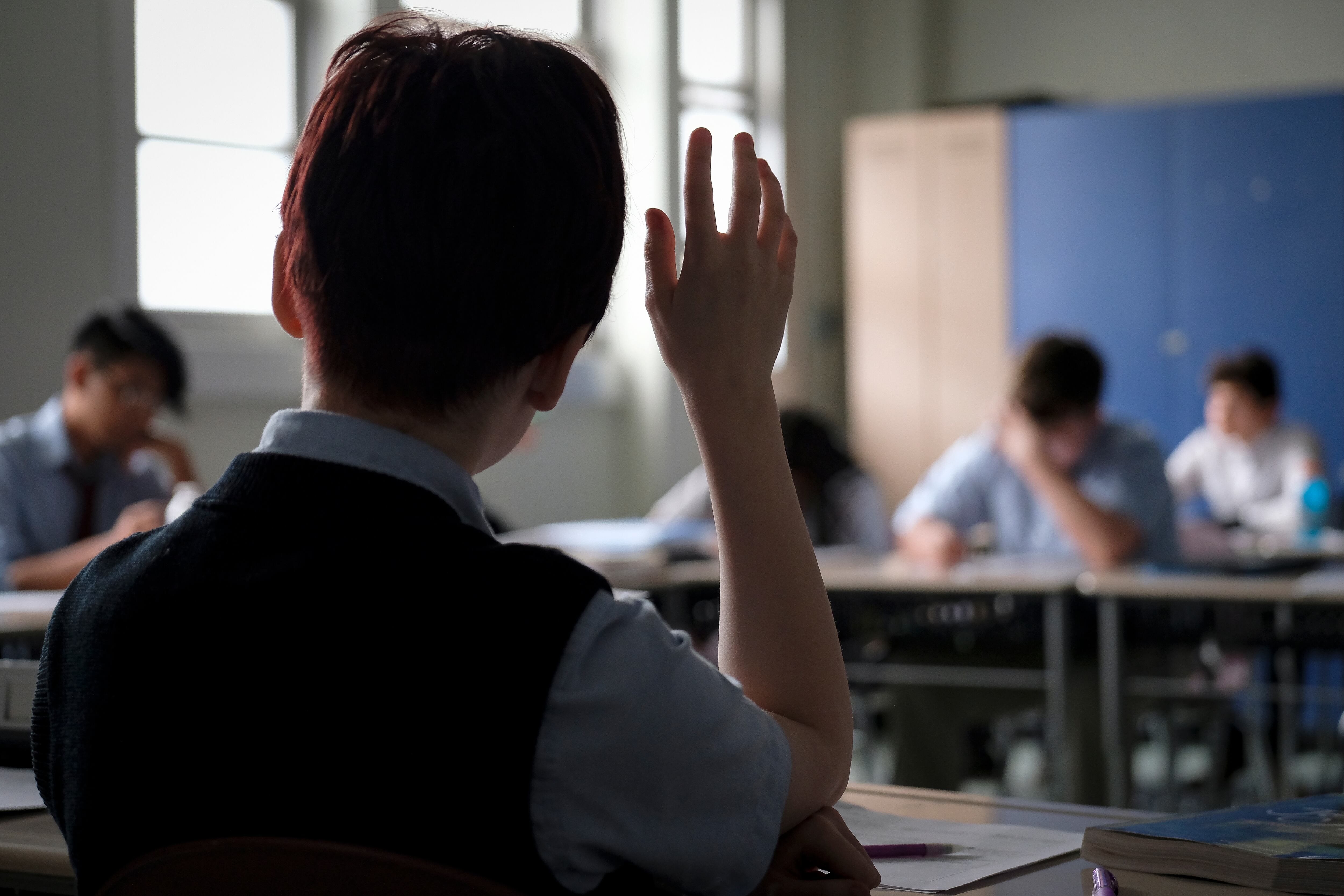Indiana politicians are seizing on the upheaval caused by the pandemic to push forward a vast expansion of taxpayer funding for private education, which could cost the state more than $100 million next year.
A top priority for House Republicans, House Bill 1005 would offer aid to thousands of students from middle-class families and children with special needs.
It could increase the number of students receiving state stipends by about 40% in 2021-22, according to an estimate from the Legislative Services Agency.
About 12,000 students who already attend participating private schools but don’t currently qualify for state aid could become eligible.
In addition to expanding eligibility for state vouchers to more students from middle-income families, the bill would create a form of school choice — known as education savings accounts — that would give stipends to parents of children with special needs to spend on their education.
The Republican effort comes at a time when some parents are frustrated with remote schooling during the pandemic and many students with special needs lost out on crucial therapies when schools were remote. Last week, the U.S. Department of Education’s Office for Civil Rights opened an investigation into whether Indiana schools are providing appropriate special education services during the pandemic.
But lawmakers would also be making a costly investment in school choice even as they have not backed substantial increases in education funding as recommended by a state commission on teacher pay.
Indiana’s voucher program, which primarily funds religious schools, is one of the largest in the country. The proposed expansion is the latest in a yearslong campaign to expand private school funding.
“Taxpayers should be allowing parents to send their child to the education that best meets the needs of their child,” said Rep. Bob Behning, R-Indianapolis, who chairs the House Education Committee and authored the bill. “Empowering parents to have a little bit greater ability to decide what’s in the best interest of their child makes perfect sense at this time.”
Critics say that expanding the state’s voucher program bleeds money from traditional public schools, reducing the quality of schools that educate most students in the state.
“We’re funding two separate systems instead of really investing in one,” said Jennifer Smith-Margraf, vice president of the Indiana State Teachers Association. Without more state funding, schools cannot offer competitive teacher pay and students suffer, she said.
“We think that the issues that parents are having in terms of public education are coming from the fact that we can’t fund the programs that we know that we need to have,” Smith-Margraf said.
The bill would open up the state’s existing voucher program — which serves 37,000 students from low- and middle-income families — to wealthier families. By 2022-23, a family of four would qualify if earning up to about $145,000 per year. That’s well above the state median income for families, which is about $74,000 per year.
It would also increase the tuition stipend that middle-class students receive to 90% of the amount the state would have provided to their public district.
The voucher program cost the state about $173 million last school year.
Proponents originally pitched Indiana’s decade-old voucher program as a way to help low- and middle-income families who couldn’t afford tuition to send their children to private schools. As the state has expanded eligibility, opponents have argued it is draining money from public schools to underwrite middle-class students who could attend private school without vouchers.
School choice supporters like Betsy Wiley, who leads Institute for Quality Education, argue that parents are entitled to money for private school tuition because they are taxpayers. Wiley said that there are families who cannot afford private schools who would be able to send their children under the expanded program.
“This does allow a number of working, middle-class families to potentially offer a better educational fit for their kids,” Wiley said. “We are talking about a very real, important educational opportunity for a number of kids, that can make a huge difference in their future.”
The most costly element of the proposed legislation would create education savings accounts focused on students with special needs. The program would be more generous than vouchers by providing the full amount the state would otherwise spend on a child’s schooling. Parents could choose to receive money for special education, instead of services. In addition to paying tuition, parents would be able to use that money for expenses such as tutoring and therapy.
The bill also makes the accounts available to children in foster care and the children of some military members and veterans.
But while the bill appears designed to help students with special needs, some advocates for those students worry that in practice, children would not get the services they need. The Arc of Indiana, an organization that supports people with disabilities, currently opposes the bill, CEO Kim Dodson said.
Dodson flagged several practical issues, including that private schools may be less likely to offer services if parents can purchase them through the savings accounts. Ultimately, Dodson said, only children with proactive parents who have time to navigate a cumbersome system seem likely to benefit.
To make the savings accounts work for more families, Dodson said, the legislature should create a special education ombudsman to help parents navigate the system and a parent council to oversee it.
“It’s really hard to argue against giving families money and control of their education. That sounds fantastic,” Dodson said. “However, it works differently for every family, and the devil is always in the details.”







